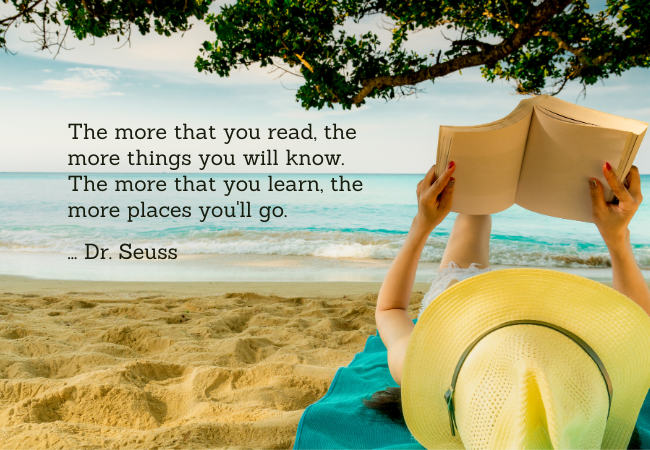7 Beginners' Mindset Tactics for Teaching Complex Things

It started in junior high school. I absolutely dreaded algebra class. Every school year I suffered through another round of algebra anxiety. It was like being dumped into a foreign country where I didn't understand any of the words being spoken, and no one told me they weren't speaking English. It was torture.
And then I had a college instructor who completely cured my algebra anxiety forever.
He started the first class by saying that women have been told that they're terrible at math. Check. But he had one simple piece of information that was going to change that misperception once and for all. It was this.
There are only 4 things that you need to know to be successful with algebra --how to add, subtract, multiply, and divide. We learned those 4 arithmetic basics in elementary school so we had all the knowledge we needed to successfully tackle algebra.
I still remember the sense of amazement hearing those words. That was it? In case we weren't convinced yet, he invited the class to share any other arithmetic functions that he might have missed. It was that simple. 12 years of math anxiety gone in a matter of minutes.
That piece of knowledge was a game changer. I couldn't wait to solve the next complex equation. This gifted instructor knew how to teach in a way that no other smart math teacher had apparently mastered --how to frame information with a beginners' mindset.
Practice the Beginners' Mindset to Become an Effective Teacher
The beginners' mindset is a Zen Buddhist concept known as Shoshin that encourages an open mind free of preconceived notions. It was brought to the West by the Japanese Zen master Shunryu Suzuki who believed that open-mindedness leads to new skills development and better decision making.
A long-time friend once said that he wished there was a way to share his decades of legal experience. We all reach a point in our professional lives where freely passing on our knowledge and insights feels more meaningful than days spent doing the same old things. But knowing where to start is what often prevents us from moving ahead.
Here are 7 tips to becoming that transformative teacher.
1. Prepare your audience to open their mind and overcome preconceived notions. Women aren't good at math until they're told –and shown --otherwise.
2. Recognize the biases that exist in your area of expertise and address them. . It's no wonder that I've remembered that standout algebra instructor decades later. He called out a long-standing, flawed myth and showed us why it was wrong.
3. Tell them it's okay to not know everything. That's what learning is for.
4. Show them how to break down complex concepts into manageable pieces. Remember those dreaded algebra word problems? They're not a single paragraph to solve, but logical step-by-step mini problems that lead to the final answer.
5. Reassure them that they can become informed enough to make sound, confident decisions.
6. Acknowledge that everyone has their own appetite for learning. Some of us are endlessly curious about everything. Others are content to stay in their comfortable know-enough bubble. Most of us fall somewhere in the middle.
7. Overcome the temptation to assume what your audience knows. Regardless of where your audience lands on the learning readiness scale, they all need to start with a clear understanding of the basics. If you're explaining quadradic equations and they haven't learned add, subtract, multiply, and divide yet, you've lost them.
Challenge Yourself to Teach One Thing Using the Beginners' Mindset Approach
It's that simple.
Discover Practical Knowledge Sharing for Business & Technology Leaders
If you've ever searched for a place to connect with business leaders without the ads, sales pitches, and usual social media clutter, you know how hard that can be.

That's why we created Studio CXO. We're business leaders like you who know there can be a better way.
Explore Studio CXO Now
 Linda Rolf is a lifelong curious learner who believes a knowledge-first approach builds valuable, lasting client relationships.
Linda Rolf is a lifelong curious learner who believes a knowledge-first approach builds valuable, lasting client relationships. She loves discovering the unexpected connections among technology, data, information, people and process. For more than four decades, Linda and Quest Technology Group have been their clients' trusted advisor and strategic partner.
Tags: Business Strategy

